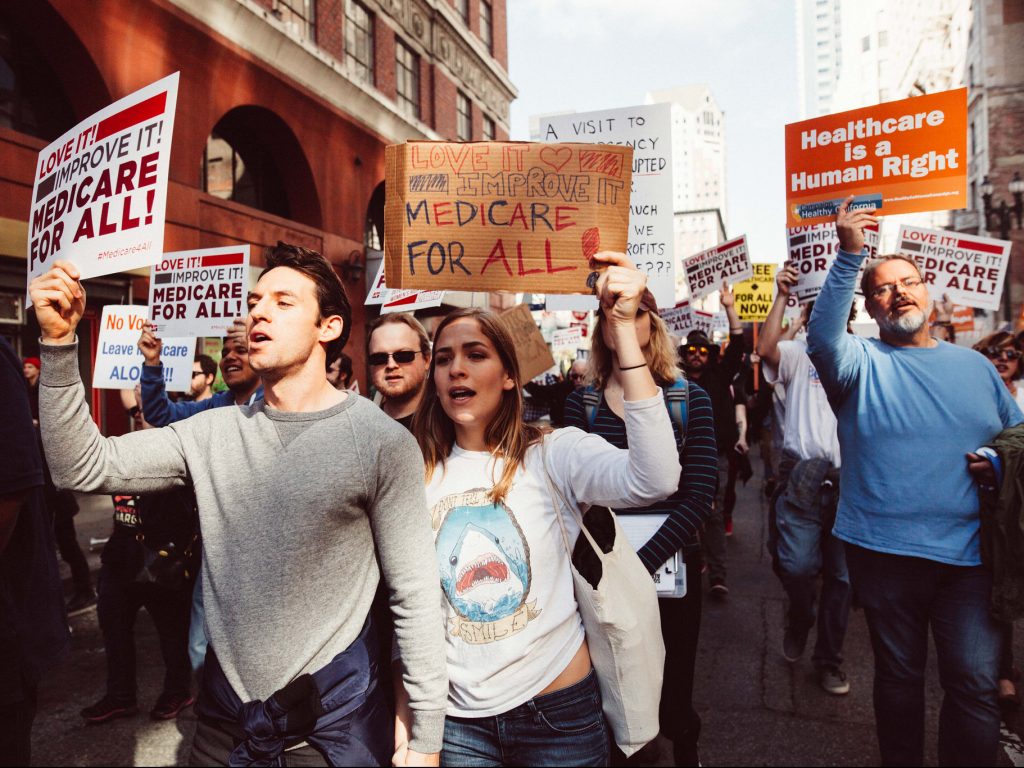There are a lot of ways Americans can and do lose their health insurance plan in the current system even when they’d rather not. The following is a partial list:
- Turn 26 years old (4.5 million people in 2017).
- Turn 65 years old (3.7 million people in 2017).
- Employer discharges you (21.9 million people in 2018).
- Quit your current job (40.1 million people in 2018).
- Separate from your job for some other reason (4.1 million people in 2018).
- Employer changes insurance carrier (15 percent of firms in 2018).
- Divorce (1.5 million people in 2018).
- Move (7.4 million people moved states in 2017).
- Lose Medicaid eligibility due to income increase or some other reason (35 percent come off Medicaid within a year, often into uninsurance).
- Spouse or parent whose plan you are on dies.
Even if you remain on the same nominal insurance plan, the insurer itself can always change its network of providers, meaning that you could lose your doctor without changing your insurance. The sources of instability in the current system are almost too numerous to count.
The claim that “if you like your insurance, you can keep it” is the biggest lie in American politics. In most cases, it is not up to you whether you keep your insurance. It is up to your boss who can get rid of your insurance or get rid of you at any time. When pundits and politicians talk about giving “people” the choice to stay on their current insurance, they are not talking about giving you a choice. They are talking about giving your boss a choice.
Your odds of being on your current insurance a few years from now are not very good. And when you lose that insurance, there is a significant risk that it will be replaced with nothing. According to the BFFRS, nearly 1 in 4 nonelderly adults face a spell of uninsurance within a given year.
The instability of the American health insurance system where most people can lose their plan at any moment is a genuine nightmare. It is the opposite of what insurance is supposed to be like. The idea of insurance is that it is there for you when you need it. It is a way of neutralizing downside risks. But Americans literally have no idea if they will be insured when that horrible moment comes. Insurance churn and coverage gaps mean that we are all a roll of the dice away from devastation.
The only proposal in the discourse that will finally eliminate insurance churn and make sure that Americans never lose their insurance again is the Medicare for All national health insurance proposal.

